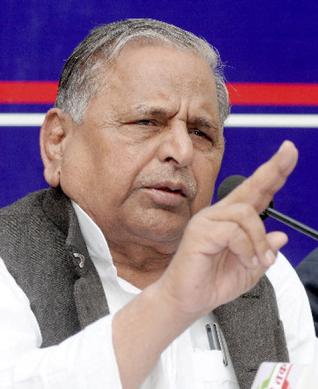The Indian National Congress is considering to move court seeking action against operation lotus, after an audio clip in which Madhya Pradesh chief minister Shivraj Singh Chouhan can be heard saying that the Central leadership of Bharatiya Janata Party wanted the Kamal Nath government to fall went viral.
Mr Chouhan is also heard saying in the purported 9.28-minute long audio clip that it was not possible to pull down the Kamal Nath government without the help of Jyotiraditya Scindia and his loyalist, former Congress MLA Tulsi Silawat.
The Congress, which has all along maintained that the BJP had hatched a conspiracy to pull down the 15-month-old Kamal Nath government to “capture” power in MP, threatened legal action.
“I have been maintaining from the very beginning that there was a conspiracy to pull down my duly elected government… The audio has established that the BJP’s Central leadership had conspired to pull down my government even though it enjoyed majority,” former chief minister and Congress veteran Kamal Nath said.
Working president of MP Pradesh Congress Committee (PCC) Jitu Patwari said his party may move court against the BJP for having plotted to dislodge an elected government following the expose in the purported audio.
Mr Chouhan was reportedly addressing BJP workers of Sanware Assembly constituency in Indore on Monday when he allegedly said in Hindi, “The Central leadership (of BJP) decided that the (Kamal Nath) government should fall. They (the Kamal Nath government) will ruin and destroy … Tell me, was it possible to dislodge the government without Jyotiraditya Scindia and Tulsi Bhai? There was no other way.”
The “Tulsi Bhai” referred to in the clip is former health minister who joined the BJP along with Mr Scindia.
“In the coming bypoll if Tulsi Silawat doesn’t become MLA again, will I be able to remain CM, will the BJP government survive?” he allegedly said, exhorting BJP workers to overcome their differences and work for Mr Silawat’s victory in the upcoming by-elections in the Sanwer Assembly seat.
Twenty-two Congress MLAs, loyal to Mr Scindia, had resigned from the Assembly leading to the fall of the Kamal Nath government on March 20, paving the way for Mr Chouhan to return as chief minister for the fourth time.
All the 22 ex-Congress MLAs later joined the BJP with Mr Scindia. Two of them, Mr Silawat and Govind Singh Rajput, have been inducted into the Shivraj Singh Chouhan Cabinet.
The BJP has vehemently denied any role in the collapse of the Kamal Nath government. Neither the saffron party’s Central leadership nor Mr Chouhan have reacted to the audio clip yet
But the party’s state spokesperson Rajneesh Agrawal dismissed the charge that it had a hand in the fall of the Kamal Nath government.
“Infighting in Congress had led to the fall of the Kamal Nath government,” he said.






Comments
Add new comment